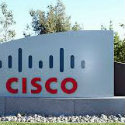How Cisco Will Compete Against White Box Switches
Selling outcomes — architecture, security and business value — will be the key to Cisco's future prosperity, outgoing CEO John Chambers says.

Cisco is in the "outcomes" business now.
Cisco Systems Inc. (Nasdaq: CSCO) faces an existential threat from switches made from commodity components at low cost, running open source software. But CEO John Chambers, in his final months heading up the company, outlined themes for combating that threat in an earnings call Wednesday. (See Cisco Earnings: Carriers Cast Shadow Over Sunny Quarter.)
Cisco doesn't just sell equipment, software and services, Chambers said. Cisco now partners with customers on "outcomes."
The company helped generate 44,000 jobs in Barcelona, worked to provide education and healthcare to "virtually every home in Israel," generated new cloud-based revenue streams for service providers and helped General Motors build a "smart factory of the future," Chambers said.
Chambers has hit these themes before -- they featured on his previous earnings call three months ago, and they're behind the company's strategic announcements over the past year. (See Chambers's Legacy: A Resurgent Cisco and Cisco: Software, Cloud to Be 'Main Focus'.)
"Competitors selling low-cost technology building blocks can't compete with our total cost advantage, operational efficiency, security and speed to results," Chambers said. And when problems arise, "we have all seen the nightmare of trying to identify where and who to call translate into billions in lost business and reputational damages."
Chambers added, "When companies and countries go digital, IT becomes a board-level concern; and reliability, security and trust matter more than ever. The Cisco brand behind every one of our architectures matters more now than ever."
Cisco's strategy, from selling technology to selling business results driven by technology, has a long, honorable history in the technology industry. Selling technology gets a supplier in to see the engineers. Selling business outcomes gets the supplier in to see the CEO and board -- where the really big checks get written.
"In enterprise, the shift to selling outcomes, not products, is resulting in larger opportunities and dramatic increases in pipeline," Chambers said. "In US enterprise, for example, the value of our pipeline of deals over $1 million increased approximately 60% year over year, with the average deal size up over 30%."
Cisco sees the Internet of Everything -- its name for the Internet of Things -- as an opportunity to drive growth still further, while focusing on outcomes. He compared it to the company's embracing the Internet in 1997, recognizing then that the net would transform businesses.
Cisco is well positioned to help businesses embrace the Internet of Everything for several reasons, says Chambers. First, the company has a 20-year record of moving to IP and convergence. "The intelligent network is at the center of every market transition, and no one comes close to Cisco when it comes to the network. As 50 billion more devices come online, we have a strong hand to play, and we are playing it," Chambers said. (See Cisco Pitches Vision for 'Internet of Everything'.)
"Second, we are driving outcomes for our customers through architectures. This is how we differentiate against white-label and single-product companies," Chambers said. (See Think Outside the White Box and CEO Chat With John Chambers, Cisco.)
"Third, in a digital world, security becomes even more important. Cisco is the logical choice as we combine a security architecture across the intelligent network," he said. CEOs have a "major fear" of security problems, and are looking to minimize them using every possible step. They aren't looking to save "a couple hundred thousand dollars on a white label box" that causes a problem, Chambers says.
Cisco has 1,200 ongoing projects in business transformations and outcomes and is looking at a pipeline of $3.7 billion in opportunities over the next 18 months, Chambers said. He cautioned, "we won't get all that," but the numbers communicate the scope of the opportunity.
Sales with governments and big business are "no longer about switching and routing," Chambers said. They're "purely outcome-based," driven by GDP growth, inclusion of minorities, job creation, healthcare, education and citizen experience, crossing industries.
Want to know more about business transformation? This will be just one of the many topics covered at Light Reading's second Big Telecom Event on June 9-10 in Chicago. Get yourself registered today or get left behind!
Chambers tells a convincing story, and one that customers will be eager to hear.
But will customers want to hear these points from Cisco, or is Cisco doomed to be pigeonholed as an equipment supplier?
And it remains to be seen whether Cisco can execute, effectively turning Chambers's vision into reality, and doing it without Chambers at the helm.
— Mitch Wagner, 


 , West Coast Bureau Chief, Light Reading. Got a tip about SDN or NFV? Send it to [email protected].
, West Coast Bureau Chief, Light Reading. Got a tip about SDN or NFV? Send it to [email protected].
About the Author(s)
You May Also Like




_International_Software_Products.jpeg?width=300&auto=webp&quality=80&disable=upscale)







